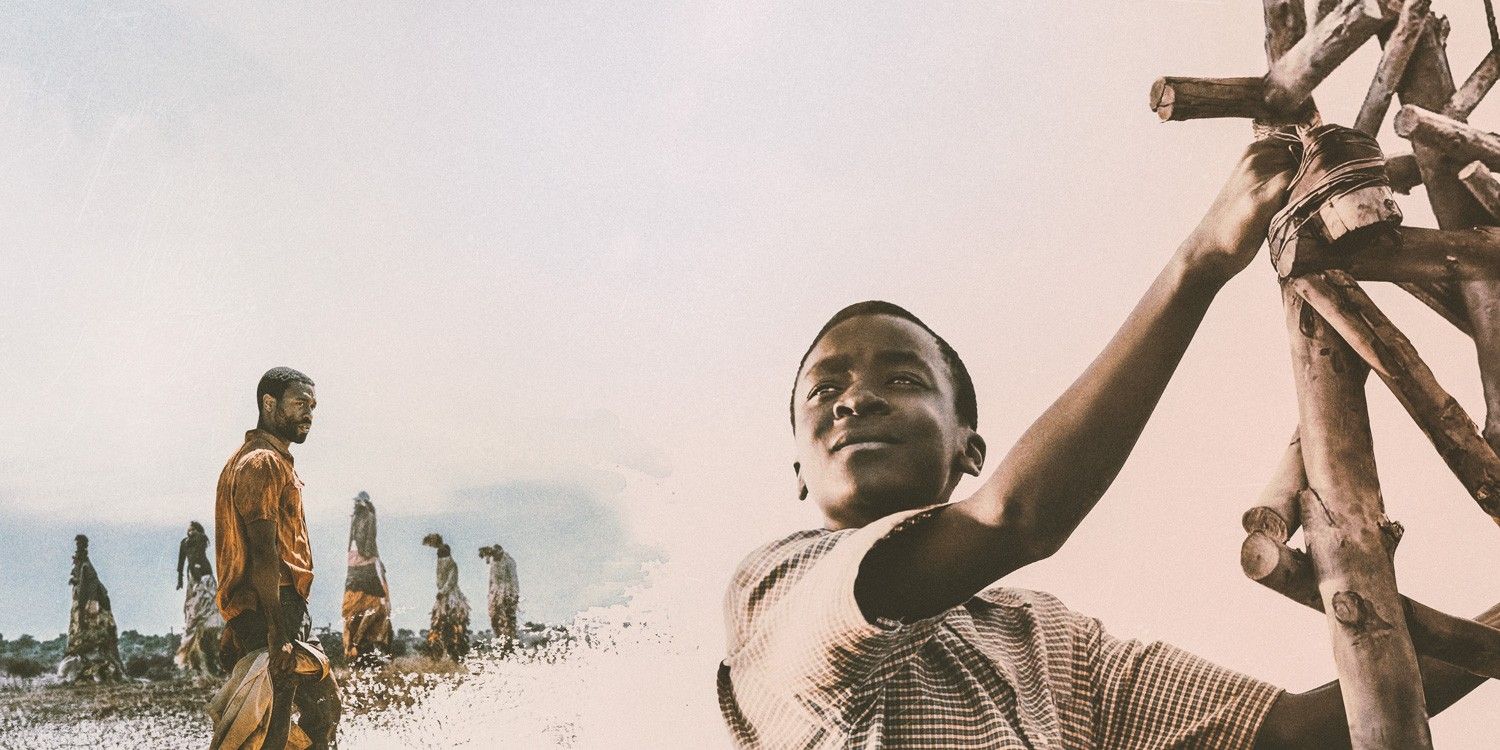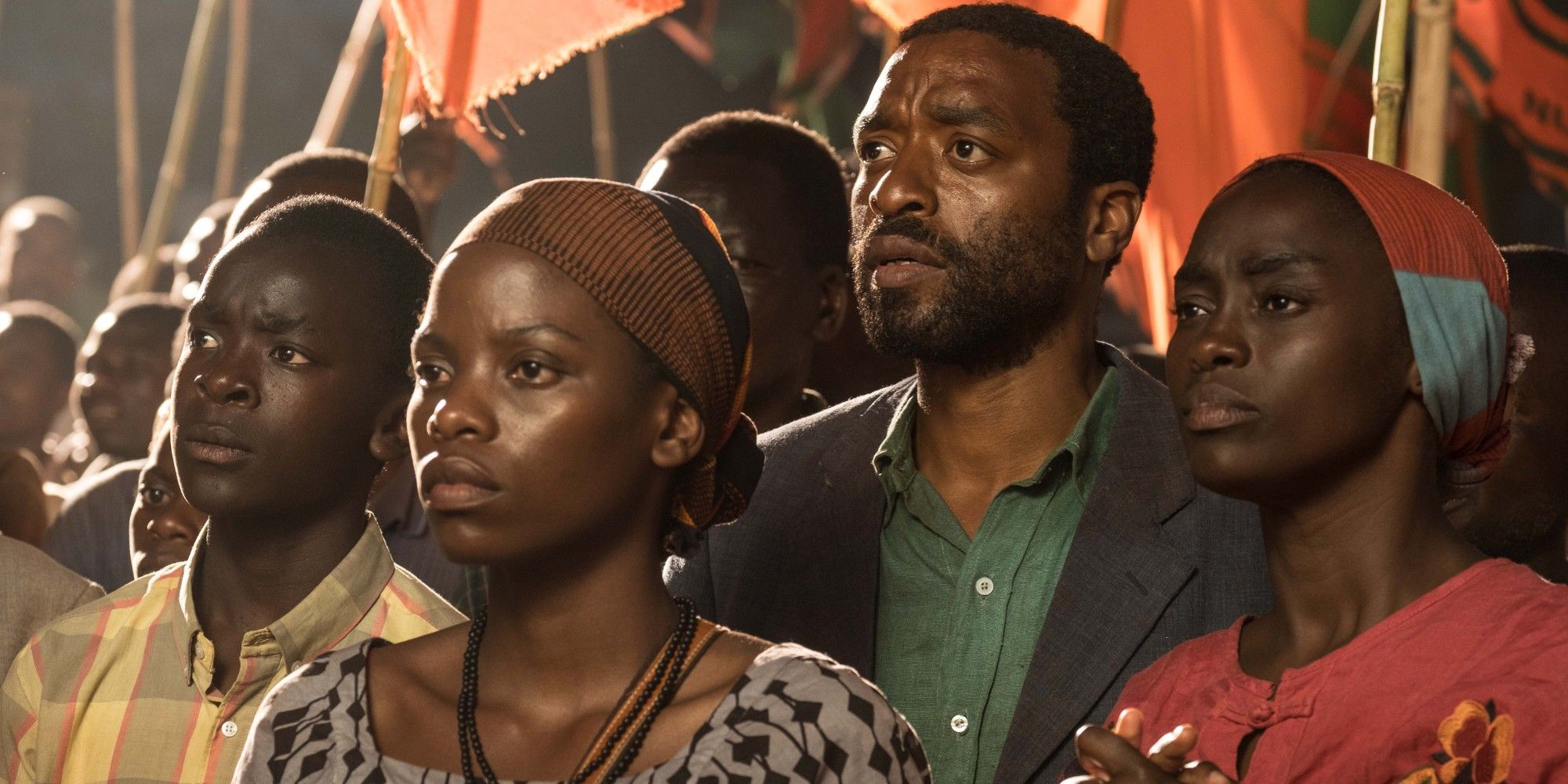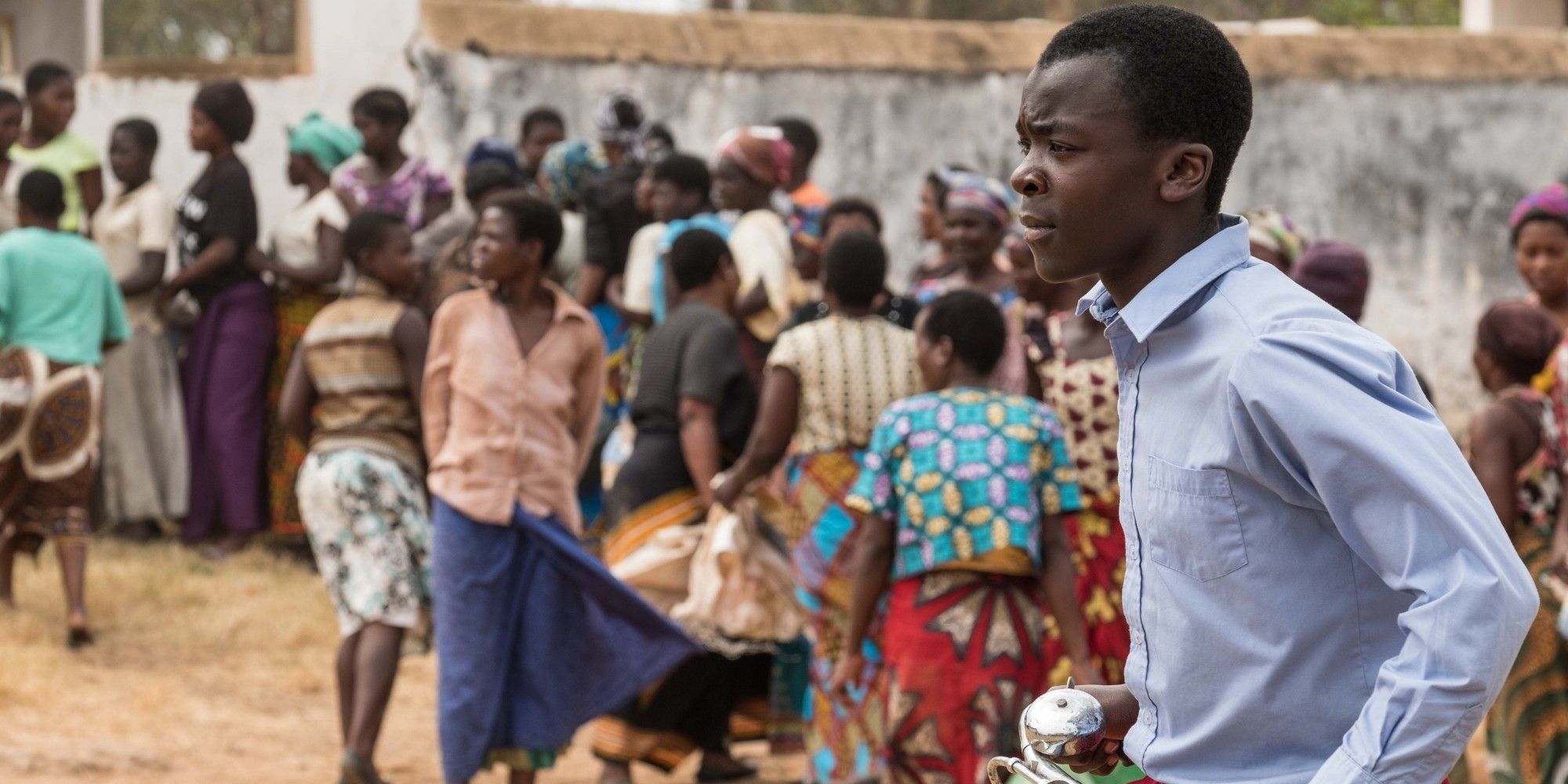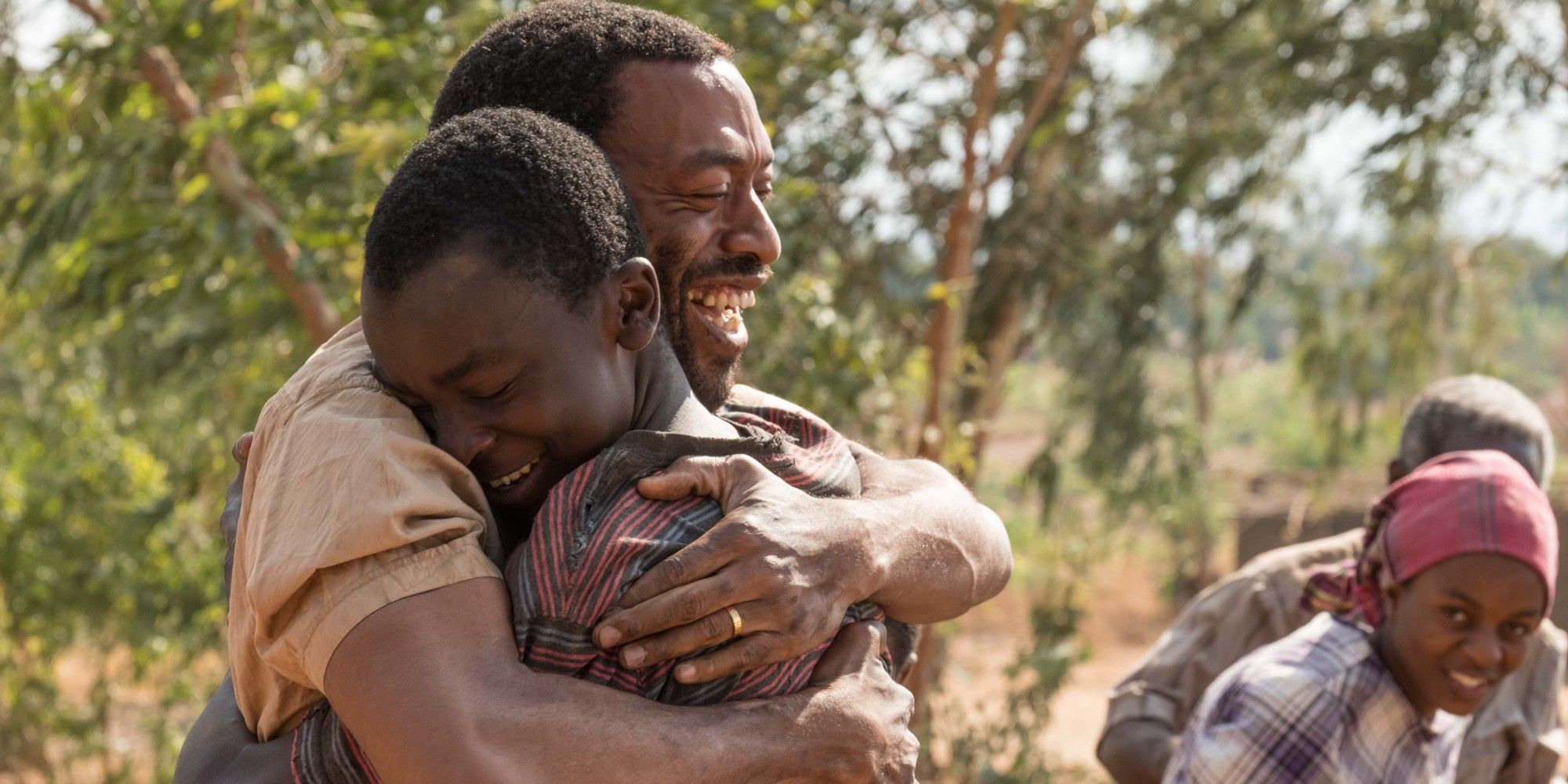The Boy Who Harnessed the Wind is respectfully restrained to a fault, but its earnest and authentic outlook provides the biopic with a beating heart.
Adapted from the memoir of the same name, The Boy Who Harnessed the Wind marks the feature directorial debut for actor Chiwetel Ejiofor. An Oscar nominee for his performance from 12 Years a Slave, Ejiofor already has a long and decorated body of work in film, television, and theater under his belt, going back to the late '90s. He's known for his powerfully understated screen presence and proves himself to be equally confident, yet calm and controlled, in his first go as a filmmaker. At the same time, he's only just begun to find his voice as a storyteller and leaves a fair amount of room for improvement on his next project. The Boy Who Harnessed the Wind is respectfully restrained to a fault, but its earnest and authentic outlook provides the biopic with a beating heart.
Maxwell Simba stars in The Boy Who Harnessed the Wind as William Kamkwamba, a young teenager growing up with his family in the small village of Wimbe, Malawi, including his father Trywell (Ejiofor), mother Agnes (Aïssa Maïga), and sister Annie (Lily Banda). Although the Kamkwamabas are low-income farmers, they pay what they can to have William attend school and get a proper education. In his free time, William hangs out with his friends, runs a small business where he repairs the local villagers' radios, and scavenges for materials from a scrapyard that he can use to power the few electronic devices that are available to him.
However, when Wimbe is struck by famine, William's family are unable to cover his tuition fees and he's forced to drop out of school. The situation only worsens from there, as the village is left with little to no support from the government and - without any rain - the land is too dry for Trywell or anyone else to plant additional crops until the next harvest season. William, upon reading a book titled Using Energy, comes to realize that by building a wind turbine, he can power a pump that will pull water from the village well and make the land farmable again. But in order to do so, he will have to convince his father that the idea can work and is worth the manpower and supplies that he'll need to make his plan a reality.
Like most biopics, The Boy Who Harnessed the Wind - which Ejiofor also wrote, based on the book by the real William Kamkwamba and Bryan Mealer - follows a predictable narrative trajectory from start to finish, with few (if any) real surprises. That said, the film does a nice job of presenting a simple, yet clean picture of life in Wimbe and the obstacles that William has to overcome, from his father's traditionalist mentality to his village's lack of resources and the governmental corruption that makes it near impossible for the locals to trust their leaders' promises of a working democracy. The movie takes place in 2001 and finds a way to nod to the September 11th terrorist attacks and how their impact can be felt across the world, but avoids making its story about the event and keeps its focus squarely on William and his family, instead. As a result, The Boy Who Harnessed the Wind makes for a tasteful and empathetic dramatization of the Kamkwambas' actual experiences.
Ejiofor proves to be similarly subtle in his direction, from his camerawork - which avoids calling attention to itself - to the way he allows long passages of the film to unfold without any music. The Boy Who Harnessed the Wind isn't necessarily a cinematically rich piece of storytelling, but it's generally visually striking thanks to the arid color palette of Dick Pope's cinematography and the way it photographs the rise and fall of the sun across the Malawian landscape (where the movie was shot on-location). Ejiofor further succeeds in creating a convincing sense of place by having much of the film's dialogue spoken in the language of Chichewa and focusing on the rituals and traditions (like the Gule Wamkulu dance) of William's home village. This allows the setting to feel like the real thing and not merely an outsider's impression of what they imagine life in the African village is like.
On the opposite side of the camera, Ejiofor delivers yet another excellent performance as William's father Trywell, a complicated man who struggles to determine the best way to support his family and embrace change when it's necessary - and with valid reason, as the film illustrates. Unfortunately, while Simba does a perfectly respectable job as William himself, the character feels less like a creatively outside-the-box thinker here and closer to the idealized version of what the actual William was probably like. Formulaic biopics have a bad habit of making their subjects and their lives seem far less groundbreaking than they really were and, to a degree, that's also the case with The Boy Who Harnessed the Wind. It's not a dealbreaker, of course, but it is the main factor that holds the film back from greatness.
It's too bad since, when it comes to its supporting players, The Boy Who Harnessed the Wind is more willing to embrace the messiness of real-life and not provide every character thread with a tidy payoff. That includes a subplot that involves Annie and Mike Kachigunda (Lemogang Tsipa) - a teacher from William's school - and plays an important role in the overarching narrative, yet doesn't get an easy conclusion and feels all the more realistic for it. This goes double for a storyline about Wimbe's Chef (Joseph Marcell) and his attempts to do right by his fellow citizens, while dealing with a government that sees his village as little more than an opportunity for political gain. Hopefully, as Ejiofor gains more confidence in his directing, he'll begin to stray further from formula and embrace this type of challenging storytelling.
As far as directorial debuts go, though, The Boy Who Harnessed the Wind is a good one and bodes well for Ejiofor's future efforts behind the camera. The film should also benefit from premiering through Netflix, seeing as it's the sort of drama that could've easily gotten lost in the fray or ignored if it had gone for a more typical theatrical release. Naturally, this one's far less flashy and much more dramatic than certain other Netflix Originals, but it's worth checking out at some point - especially if you're already a fan of Ejiofor's acting when he's not directing himself.
TRAILER
The Boy Who Harnessed the Wind is now available for streaming through Netflix. It is 113 minutes long and is not rated but contains some violence and mature language.
Let us know what you thought of the film in the comments section!




